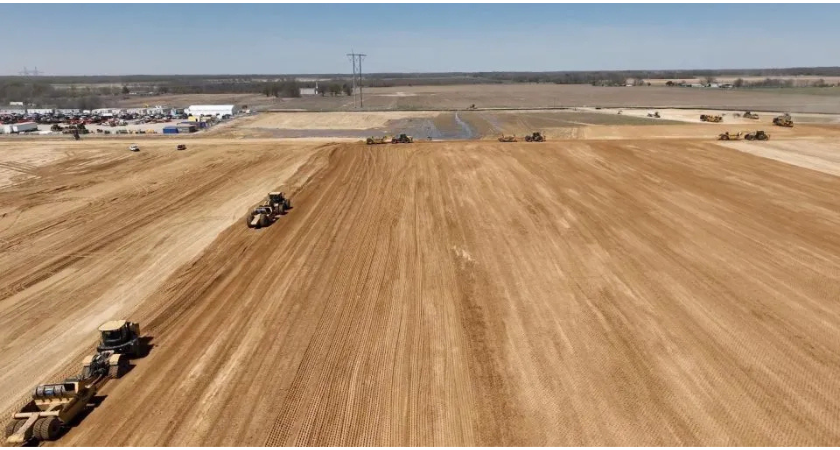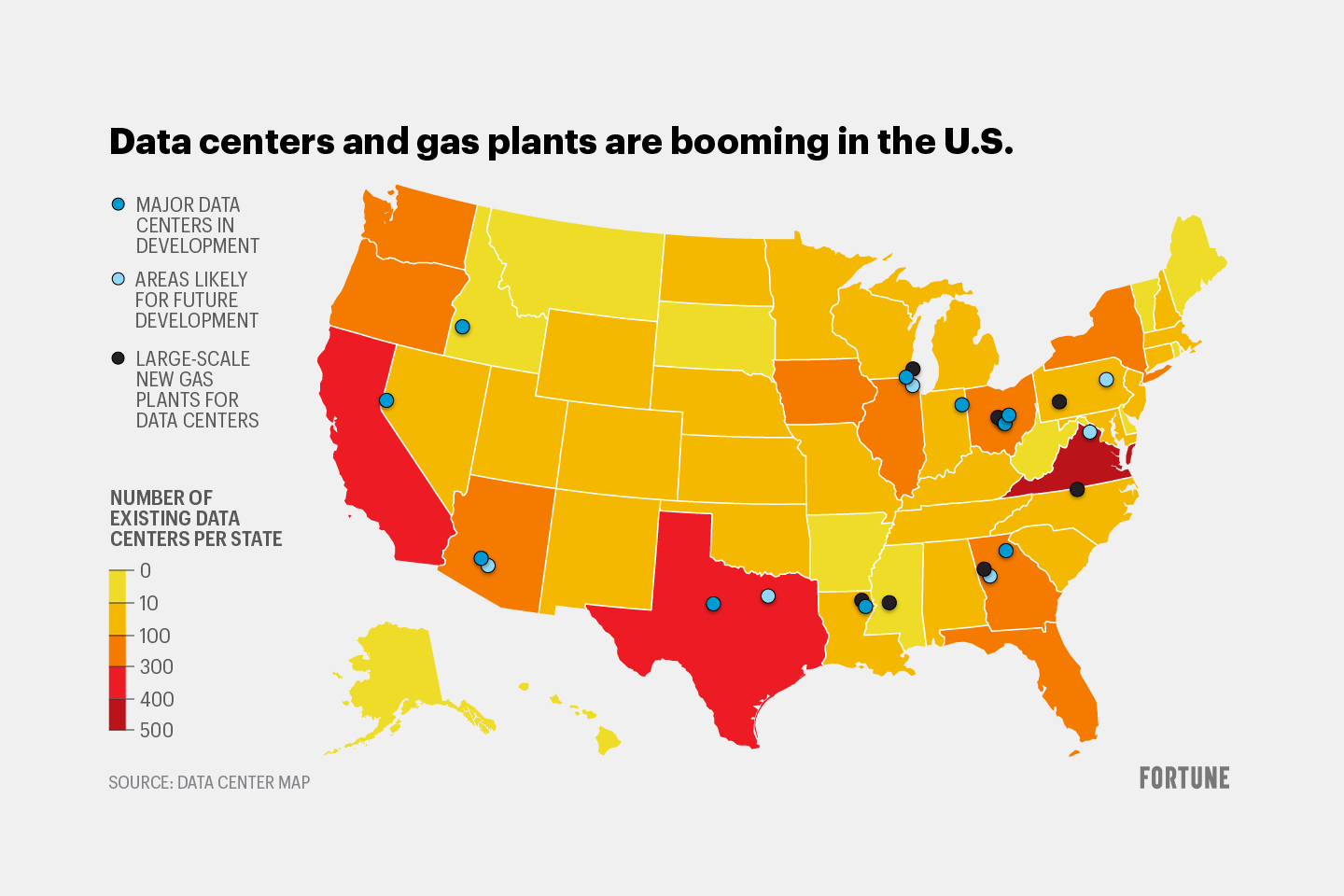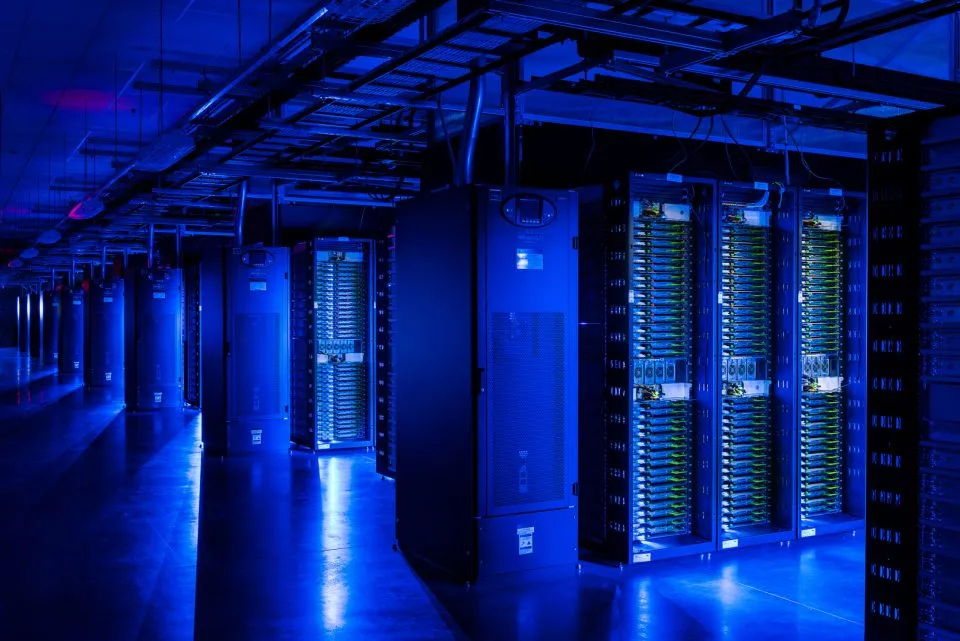
On a vast 2,000-acre stretch of farmland in Richland Parish, Louisiana, bulldozers and excavators are reshaping the landscape into what Meta CEO Mark Zuckerberg calls the company’s boldest bet yet on artificial intelligence.

In December, Meta began construction on Hyperion—a $10 billion, nine-building data center complex designed to support its “superintelligence” ambitions. Once complete, Hyperion will span over 4 million square feet—larger than Disneyland—and eventually consume as much power as 4 million homes.
Zuckerberg framed the project as central to Meta’s new direction, saying on a July 30 earnings call: “We are making all these investments because we have conviction that superintelligence is going to improve every aspect of what we do.”
The project depends on new gas-fired power plants from Entergy, Louisiana’s largest utility. In August, state regulators approved Entergy’s plan to build three new turbines with a combined 2.3 gigawatts of capacity. The decision came two months earlier than expected, with regulators describing the Meta deal as a potential model for how Big Tech and utilities nationwide might structure similar projects.
“This deal could signal to other states that this is how data centers should be governed and operated,” Louisiana Public Service Commissioner Davante Lewis said. “This would be a test across the nation. I’ve heard that from investors; I’ve heard that from credit agencies; I’ve heard that from fellow data centers—whatever comes out of the Meta deal may be the framework for them all.”
Meta agreed to cover the costs of Entergy’s $3.2 billion gas plants for the first 15 years, as well as invest in 1.5 gigawatts of solar and battery power. Supporters say this positions Louisiana as a leader in next-generation AI infrastructure. Critics, however, argue it locks the state into fossil fuel dependency at a moment when the U.S. grid should be shifting to renewables.
Local residents, many of whom live below the poverty line, are both astonished and wary of the transformation.
“I think, like a lot of people, my initial reaction was kind of blown away that a site [so] rural was selected for something like that,” said Justin Clark, pastor of First Baptist Church in Rayville. “As we started learning more about what it was and what the scope entailed, that feeling just continued. An amazement of, ‘Good grief.’”
Clark noted the sheer size, recalling a recent chamber of commerce banquet: “They were told it’s the largest construction site in North America: ‘That’s unbelievable.’”

While he hopes Hyperion will bring jobs and investment, Clark admitted the community has mixed feelings. “Some people who’ve lived in that area for generations feel displaced because of the development. At the same time, we don’t have any real say on whether it’s going to happen.”
The Louisiana Energy Users Group, which includes oil majors like ExxonMobil, Chevron, and Shell, warned that the project will raise energy demand statewide by 30%, potentially driving up costs for ratepayers. Environmental advocates, meanwhile, question the strain on water resources and the long-term risks of relying on natural gas.
“The Richland data center is to be the largest in the world,” said Margie Vicknair-Pray of the Sierra Club. “How can we ensure that blackouts won’t become more frequent? What we have yet to fully understand is the impact the data center will have on the land, our resources, and the people.”
Meta, for its part, argues that natural gas is the “lowest reasonable cost option” for powering the always-on needs of an AI supercluster.
Hyperion isn’t happening in isolation. Amazon, Microsoft, and Google are each committing $75B–$100B to new AI data centers in 2025 alone, while OpenAI’s Stargate project in Texas aims to be even bigger, with a $500 billion vision backed by $100 billion in initial funding.
Industry analysts warn the U.S. could see data centers consume up to 12% of national electricity by 2028. That level of demand risks forcing regulators, utilities, and tech giants into unprecedented power deals—many in rural areas like Richland Parish where land is cheap but infrastructure fragile.
Energy analyst Cathy Kunkel described the Meta deal as “precedent setting,” noting that utilities may be overbuilding gas capacity that could become obsolete if AI efficiency improves or if the boom fades.
Pastor Clark, reflecting the mood of many locals, summed it up plainly: “It is happening, so we want to make the best of it.”
Originally reported by Delaney Nolan in Fortune.